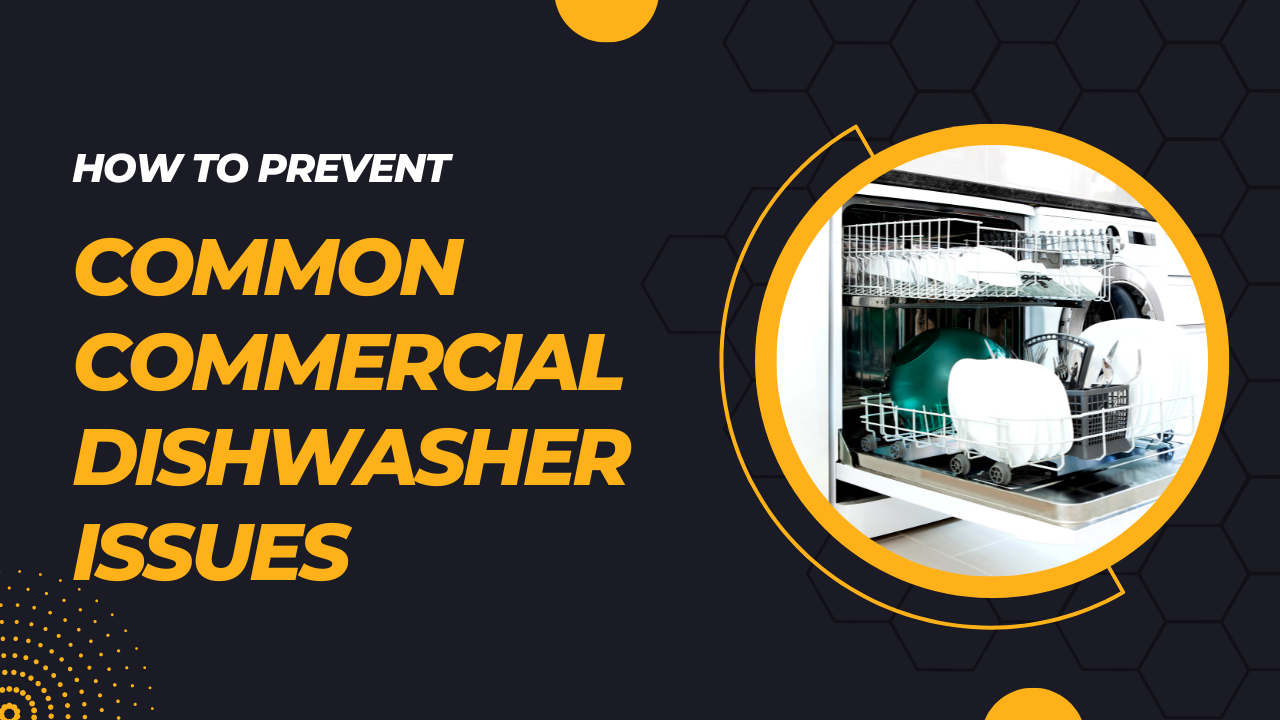Introduction
A Commercial Dishwasher, commonly known as a washing machine, is an industrial dishwashing machinery with a bigger capacity than your standard Dishwasher, which is capable of washing more dishes, glasses, pans, and pots with the use of chemical sanitizer.
What is a Commercial Dishwasher?
Commercial Kitchen Dishwasher machines are crucial for any commercial kitchen as they’re well-equipped to handle the immense workload in the kitchen with flawless energy efficiency. Whether it is a commercial conveyor dishwasher, this equipment helps reduce your workload in the kitchen and increases your productivity.
What is the Purpose of a Commercial Dishwasher and Why Is It Crucial For Your Restaurant?
A Commercial Kitchen Dishwasher is specially designed for cleaning huge quantities of glasses, pans, pots, dishes, and other kitchen utensils in a commercial kitchen space establishment, like a restaurant cafeteria.
If there is ample space in your kitchen, utilizing this machine to clean glasses and dishes would be favorable. They can hold large racks per hour and even sanitize dishes properly to ensure they are safe for consumers.
What is the difference between a Commercial Dishwasher and a Domestic Dishwasher?
Primarily commercial Dishwashers use water, which is heated at 180 degrees Celsius. This rate is very high compared to a domestic dishwasher, which works principally on low-temperature water. The commercial Dishwasher needs to reach 180 degrees to ensure all the plates are hygienically cleansed.
Commercial Dishwashers are used under those conditions where the consumer is eating from a plate; it’s of utmost importance that those plates are hygienically cleansed. Most commercial washing machines have hot water feed, which allows them to heat water without using much energy.
What are the Types of Commercial Dishwashers?
There are different types of commercial dishwashers available out there in the market:
- Door Type Dishwashers: This is the most common type of commercial Dishwasher, the best choice for a commercial kitchen. These dishwashers come fitted with a conveyor belt, sending the rack into a chamber where glassware and dishware are washed, rinsed, and dried.
- Flight-Type Dishwashers: These are high-performance utensils operating in prominent, busy kitchens. Because of their high output, they can wash and sanitize a high volume of cookware in a shorter period.
- Pot & Pan Washers: These commercial Dishwasher types are made for washing longer items in your kitchen, like larger pots, baking sheets, and pans. They can clean different types of cookware and are primarily suitable for kitchens that need to wash more prominent items.
- Glass Washers: Glasswashers are a type of commercial Dishwasher specially designed for handling and washing different fragile glasses. It exploits high temperatures and low water pressure to clean the mirrors effortlessly.
- Portable Dishwashers: This type of commercial Dishwasher is best suited for a mobile business like catering shops. Portable Dishwashers are small and compatible and can be moved around with ease.
- Under-Counter Dishwasher: As the name suggests, this Dishwasher is a small and compact dishwasher that can fit under the counter in your kitchen. Under-the-counter dishwashers are similar in size to the household dishwasher as it washes a single rack per cycle, but their capacity is approximately more.
- Counter Dishwasher: This type of Dishwasher is a small and compact dishwasher that can fit on top of your kitchen counters. It is an excellent choice for businesses with limited kitchen space, like food courts, office kitchens, and small coffee shops.
How to use a Commercial Dishwasher?
The below-mentioned steps will guide you through the process of using a commercial dishwasher:
- Start using a pre-rinse sink valve to scrape the excess large food particles.
- Proceed to start loading the dishes onto the rack, but ensure you don’t overload them.
- Put a suitable amount of detergent into the machine.
- Shut the machine door and choose the required cycle based on the dishes you want to wash with their dirt level.
- Wait for wash, rinse, and dry circles to be completed, as it might take some time, depending on the load you put on the machine.
- When it is done, open the door of the Dishwasher and unload the dishes with extreme caution.
- Place the dishes in a clean and dry area until you want to use them.
What are the Advantages and Disadvantages of Commercial Dishwasher?
Below mentioned are some of the advantages and disadvantages of a dishwasher:
Advantages
- Commercial Dishwashers can sanitize dishes and remove unnecessary stains as they operate at high temperatures.
- These equipment come with in-built chemical dispensers to dispense sanitizer, rinse aid, and detergent.
- They can wash vast quantities of dishes at the same time.
- With high-temperature air, the dishwashers can dry the dishes quickly, so they can be ready to use faster.
Disadvantages
- Only some dishes can be placed into the Dishwasher, or it will get overloaded.
- The amount of purchasing a commercial dishwasher is very costly.
Conclusion
Commonly, conveyor dishwashers and under-counter Commercial Dishwashers are tools of extreme help that can be used in your retail kitchen space to handle the tasks of washing dishes, glasses, large pots, and other dishware with extreme efficiency.

 0800 644 2727
0800 644 2727

